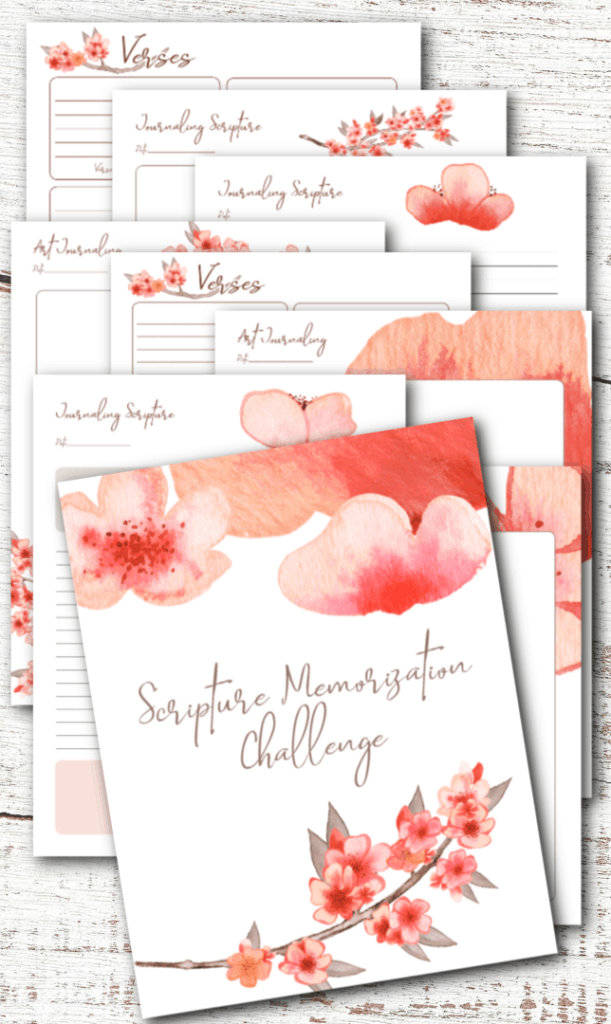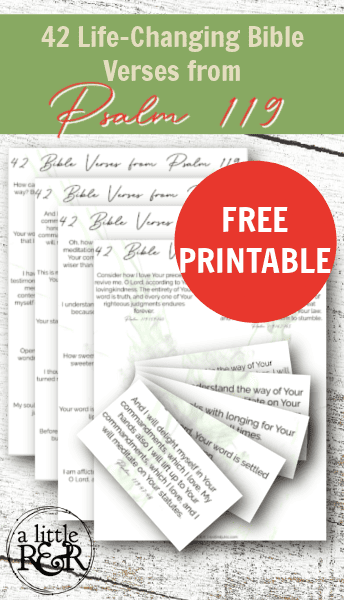Christian Meditation for Chronic Illness
I hope you love the products and resources I recommend here at A Little R & R. Just so you know, it is possible that I get a commission and collect income from the links on this page. Click here for more info.

It’s been nearly 15 years ago now since I was told I had adrenal fatigue.
Looking back, my journey to recovery looks a lot like the Cascades that served as the gorgeous backdrop of my childhood:
- A lot of peaks and valleys
- A lot of highs and lows
- A lot of progress and regress
I’ve spent countless hours researching adrenal fatigue recovery, and one thing most doctors (those who recognize adrenal fatigue) recommend for their patients is meditation.
Meditation has become an accepted form of stress relief and healing in our society today, even among Christian doctors.
However, as Christians our first question should be “What does the Bible say?”
Christian Meditation for Chronic Illness
Because while science recognizes meditation as a viable tool for healing, we don’t bow the knee to science, we bow our knee to God’s Word.
Every time.
Actually, the Bible does talk about meditation.
“This Book of the Law shall not depart from your mouth, but you shall meditate in it day and night, that you may observe to do according to all that is written in it.” Joshua 1:8 (emphasis mine)
“Be angry, and do not sin. Meditate within your heart on your bed, and be still.” Psalm 4:4
There are three Hebrew words for meditate that we see in the Old Testament:
- Hagah,meaning to speak, mutter, muse, imagine or plot (Joshua 1:8, Psalm 1:2, Psalm 63:6, Psalm 77:12)
- Siyach, meaning to muse, to study, to ponder, to sing, to speak (Psalm 143:5, Psalm 77:6, Psalm 119:15, 27, 48, 78, 148, Psalm 145:5)
- Amar, meaning to speak, to command, to tell (Psalm 4:4)
Notice that these meanings involve thinking about, studying, speaking, and even commanding.
Christian meditation is so different than eastern meditation that the two are contrary to one another.
While eastern meditation involves emptying the mind, Christian meditation involves filling the mind with God’s Word and then studying it, thinking on it, and speaking it – even commanding it – to our heart.
Christian Meditation for Chronic Illness
Christian meditation isn’t just a good Christian discipline that we should all practice. It is a command.
Christian meditation will not put you in a zen state or give you the relaxation that transcendental meditation promises. It goes above and beyond this!
Christian meditation renews the mind.
“And do not be conformed to this world, but be transformed by the renewing of your mind, that you may prove what is that good and acceptable and perfect will of God.” Romans 12:2
While transcendental meditation may help to relieve stress and put a person into a relaxed, zen state, it doesn’t last.
Christian meditation takes those thoughts and emotions that lead to stress and anxiety and begins to change them.
Our thoughts are transformed, so that they reflect the truth of God’s Word.
Our emotions come under the control of the Holy Spirit so that they are expressed through the truth of God’s Word.
3 Steps to Christian Meditation
1. Choose a passage and memorize it
Christian meditation obviously begins with memorization. Now, you don’t have to completely memorize a verse or passage to meditate on it. You can meditate on God’s Word while sitting at the table with your Bible in front of you.
But if you want to mediate on a verse or passage all day, you will need to have it memorized.
Here you will find a series of posts I’ve written on Scripture memorization. An easy way to begin memorizing Scripture is to write it down and carry it with you.
I recommend memorizing and meditating on passages of Scripture, even whole chapters and books, because it keeps things in proper context.
It is very easy to get confused, even believe something contrary to the whole of Scripture, when we take a verse out of context.
2. Think deeply about the passage, word-by-word
Let’s use Psalm 1:1 as an example.
Blessed is the man who walks not in the counsel of the ungodly, nor stands in the path of sinners,
Nor sits in the seat of the scornful
Blessed – Happy, rich, fulfilled
is – now, present
the man – I can insert my name here
who walks not – doesn’t follow the crowd, behavior
in – isn’t immersed in
the counsel – the opinions, the philosophies, the worldviews
of the ungodly – those who do not acknowledge God, who have not surrendered their life to God, whose lives are not founded on and centered on God.
nor stands – is not rooted in, established upon
in the path – the direction, the journey
sinners – those who habitually break God’s commands
nor sits – rests, abides, dwells
in the seat – in the habitation, dwelling place
of the scornful – those whose behavior is a mockery of God, those who are ambassadors of the enemy, those who teach others to sin
3. Personalize the passage
How happy am I when I refuse to follow the crowd and pattern my life after the philosophies and world views of those who do not acknowledge God as their maker and whose lives do not center on God. How happy am I when I choose not to establish my vision and my life’s direction in the manner of those who habitually break God’s commands. How happy am I when I reject the temptation to invite into my life those people whose behavior is a mockery of God and teach others that it is okay to sin.
When is the best time of the day for Christian Meditation?
You can meditate on God’s Word any time, day or night, no matter where you are.
But the obvious time of the day that is easiest for everyone is as you are wrapping up your daily devotions. After you have read a portion of God’s Word, meditate on it.
Ask yourself what it means and what it means to your personally.
But there is another time of day when meditation is especially powerful, and that is as you are falling asleep.
“I will bless the LORD who has given me counsel; my heart also instructs me in the night seasons.” Psalm 16:7
Your spirit never sleeps.
“When I remember You on my bed, I meditate on You in the night watches.” Psalm 63:6
The Hebrew word for “instructs” in this verse literally means to reprove, to instruct, to chastise, to punish. Meaning, as you meditate on God’s Word as you fall asleep, it will begin to correct your heart. Your thinking.
Renewing the mind.
As you meditate on God’s Word while falling asleep, God takes His Word and begins to renew your heart. He instructs, chastises, and reproves your heart.
We see this same concept in Psalm 4:4 “Be angry, and do not sin. Meditate within your heart on your bed, and be still.”
The Hebrew word for meditate in this verse is command or instruct.
Command your heart to be still and not to allow your righteous anger over injustice and unrighteousness to get out of control and turn into sin.
More Resources on memorizing, meditation on Scripture and Fasting:
Resources for the exhausted woman:


















Really disappointed to see several ads on your website for Reiki training! And you may get a possible commission from these links.
Time to unsubscribe !
Hi Brenda. I am so sorry those ads showed up. I will contact my ad company and ask them not to show them. I don’t choose the ads, and I don’t always know which ones show up, but when notified, I can ask for them to be removed. So thank you for letting me know!
just wanted to let you know there are condom ads on your page.
Thank you. Those kinds of ads are supposed to be blocked. I will look into that right away.